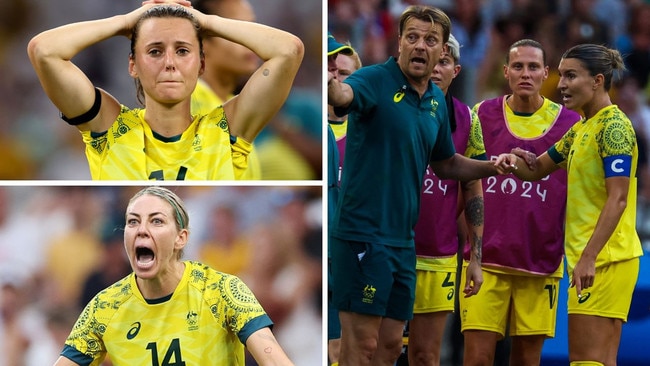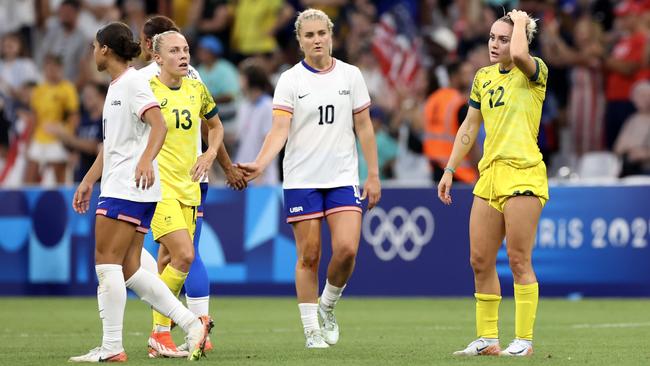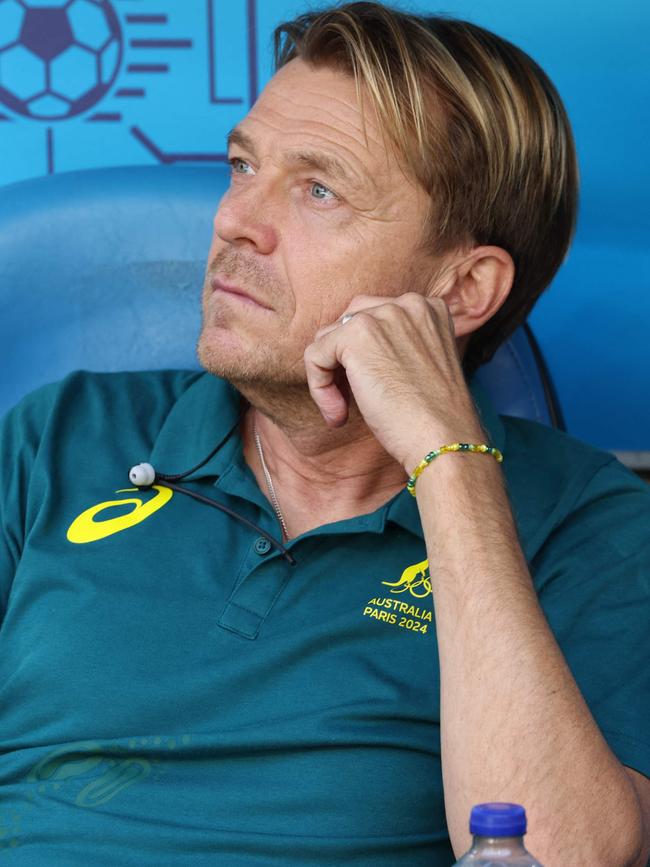‘Four years of hell’: inside the Matildas’ dramas as Tony Gustavsson departs after Olympic debacle
In his final days as coach, the publicly charming Tony Gustavsson was folding behind closed doors. After being bundled out of the Olympics, ‘devastated’ players couldn’t pack their bags fast enough.

For some Matildas players it was the culmination of “four years of hell”. The depth of the chaos the team has been dealing with came to the fore in France this week when they turned out their worst Olympic performance in more than two decades.
The Australian understands some players were puzzled by coach Tony Gustavsson’s tactics during the Olympics campaign and other major tournaments, including their glorious run in the World Cup. It can be revealed that Gustavsson lost the dressing room some time ago; sources close to the players say his chaotic tactics were constantly tipping players over the edge in France.
“It was disorganised chaos,” they said. Several players have described it privately as “four years of hell”.
Except the heat is also on the players. Football Australia has announced there will be a “thorough” review of the Olympic disaster.

“As part of our commitment to continuous improvement, we will conduct a thorough review of the campaign,” chief James Johnson said.
“This review will identify areas for improvement and ensure we are well-prepared for future challenges. The process for the recruitment of the Matildas head coach will also commence immediately.”
The Australian understands that the review will focus on high performance, including the fitness and conditioning of players.
From the first match, the Matildas were out-muscled and didn’t have the speed to beat football powerhouse Germany and were taken down 3-0.
Before this Olympic campaign had even started, there had been internal scrutiny on the Matildas’ social media posts during their break in Europe – before they hit an almost four-week training camp in Marbella, Spain.
The Matildas are the jewel in the FA crown, the reason why the code is on the cusp of signing a $200m four-year TV deal.
They were afforded a well-funded campaign, including a charter plane, luxury accommodation and 23 contracted staff for 22 players.
On Thursday morning inside camp, players were naturally “devastated” and also “angry”. Some couldn’t pack their bags fast enough to get out of an environment that has brought only disappointment.
Gustavsson in his final days as Matildas coach was being paranoid about leaks against him to the press and raised the issues with officials. The publicly charming and charismatic coach was folding behind closed doors under pressure.
The coach, who didn’t reside permanently in Australia during his tenure, didn’t publicly speak about his departure and made a quiet exit from Marseilles with just a statement. “It has been a great honour and privilege to have been able to be the head coach of the Matildas over the past four years. This journey with the team has had many incredible moments and memories that I will forever treasure.
“Thank you to the incredible players for letting me play a small part in their stories, my staff for being beside me every step of the way, Football Australia for backing our vision for this team, the Australian football family for embracing me and the Australian public for the tremendous support.”

He finished with 30 wins from 59 matches. “It was four years with a taxi driver in the seat of a formula one racer,” said one high ranking football official.
The Matildas conceded 10 goals over three matches in the group stage against Germany, Zambia and finally the US.
Less than 10 hours after the final Olympic loss to the US, it was announced Gustavsson had his contract ended.
But the cracks – if you scratched beneath the surface of “Matildas mania” – were visible. At times during the last World Cup, players would just simply not take notice of what Gustavsson was saying to them.
Those around the Australian side will tell you that the World Cup was a “strong team effort” guided by Sam Kerr’s leadership that steered them there.
Effectively Gustavsson had two excellent games at the World Cup with wins against Denmark and Canada and then the extraordinary penalty shootout win against France.
Football Australia did not want to part with him after the World Cup and pay out the remaining year of his contract.
While he guided the team to the semi-final, and his motivational skills have been prominent – witness his scarf-wearing moves at the start of each World Cup match, for instance – he has never convinced with his tactical acumen.



To join the conversation, please log in. Don't have an account? Register
Join the conversation, you are commenting as Logout